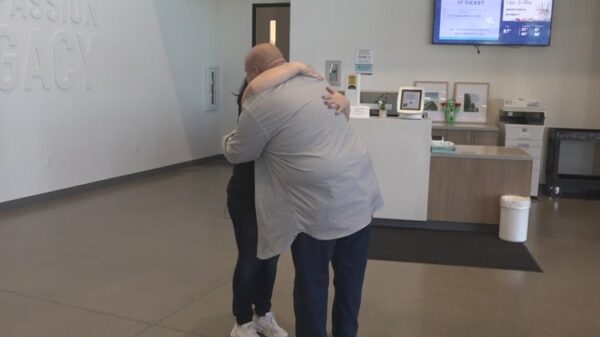In an innovative effort to combat veteran suicides, data science is playing a pivotal role in a project based in Raleigh, North Carolina. The initiative, led by Austin Grimes, chief product officer of the nonprofit organization Stop Soldier Suicide, aims to analyze the digital behaviors of individuals who have tragically taken their own lives.
Grimes, a veteran of the U.S. Army with eight years of service, understands the struggles faced by military members. “I’ve absolutely lost both friends and service members to suicide,” he shared. This personal experience has fueled his dedication to the mission at Stop Soldier Suicide, particularly through the Black Box Project, which seeks to gather and interpret data to identify risk factors associated with suicide.
The Black Box Project has received support from families who have lost loved ones to suicide, who have generously loaned their devices for analysis. According to Grimes, researchers have examined data from over 100 donated devices, employing forensic approaches alongside advanced data science and artificial intelligence techniques. This analysis has uncovered significant patterns in digital footprints that often precede suicide, offering potential pathways to prevent future tragedies.
“We absolutely see that these individuals maintain an external facade,” Grimes explained. He noted that the activities visible on devices—such as text messages, phone calls, and emails—often reflect a steady risk pattern in the final year of life. Additional findings indicate that changes in sleep patterns and financial stress are prevalent among those at risk.
The statistics surrounding veteran suicides are sobering. Grimes highlighted that, on average, 6,500 veterans take their own lives each year, with an additional 50,000 Americans outside the veteran community also lost to suicide annually. This alarming reality underscores the urgency of the project’s work.
Grimes emphasizes the importance of empathy in addressing these issues. “Empathy matters and understanding matters,” he stated. He advocates for a non-judgmental approach to support those in distress, recognizing the complexities of mental health challenges.
The findings from the Black Box Project are documented in a white paper available for public access, providing insights into the data-driven approaches that may offer hope in preventing suicides among veterans and the wider community. As initiatives like this evolve, they illuminate the potential of data science to make a meaningful impact on some of society’s most pressing issues.





































































